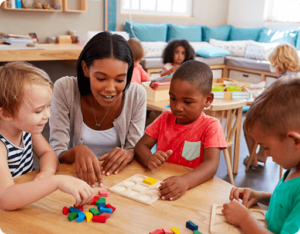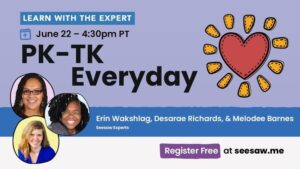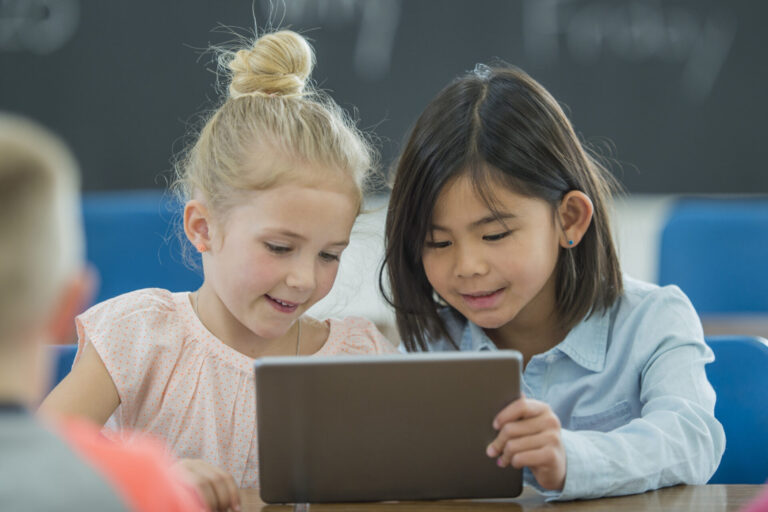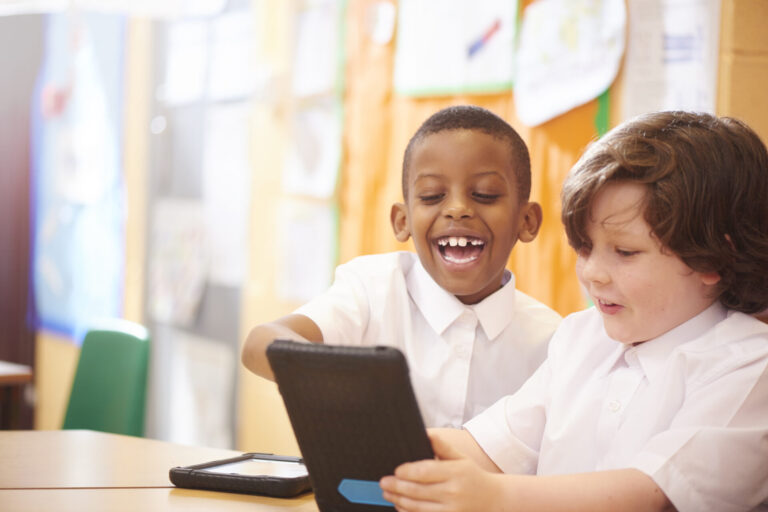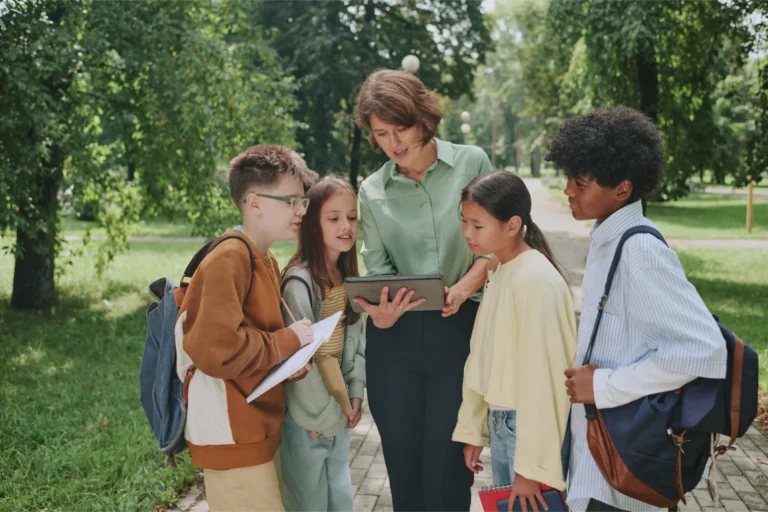Our recent Learn with the Expert session featured three Seesaw experts from Seesaws’ curriculum development team including Erin Wakshlag, Deserae Richards, and Melodee Barnes.
Erin Wakshlag is the current senior manager of curriculum at Seesaw and a former elementary school teacher and reading interventionist who received her master’s in educational leadership with an administrative credential at Berkeley. Deserae Richards is an early learning curriculum developer at Seesaw and a former elementary school teacher in a Spanish dual immersion program. She works in higher education supervising preservice elementary educators in practicum placements and teaches courses in content methods, language and culture, and more. Melodee Barnes is a former teacher with over 25 years of experience and now serves as the family coordinator for Seesaw. Through coaching and modeling, Barnes has founded various programs, teaching families to navigate educational spaces.
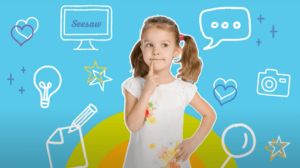
With the goals of helping educators and families understand the value of pre-kindergarten (PK) and transitional kindergarten (TK) and see the importance of family involvement in early education, these Seesaw experts share an overview and demo of PK and TK lessons in the Seesaw Library.
THE VALUE OF PRE-KINDERGARTEN AND TRANSITIONAL KINDERGARTEN
At their core, PK and TK help children prepare for what is ahead. The goal of this curriculum is to teach children how to learn by encouraging curiosity and exploration so that they can fathom the idea of gaining knowledge in the future. The five central domains for both toddlers and preschoolers in the head start framework are as follows: approaches to learning, social and emotional development, language and literacy, cognition, and perceptual, motor, and physical development.
Wakshlag, Richards, and Barnes share that PK and TK students grow and thrive with an intentional focus on language development, opportunities to make authentic connections, and audio, video, and picture supports. Because of this, students have the chance to share, play, sing, dance, and make their wonderings and learnings visible in this PK/TK collection. The hands-on activities help students practice their early literacy, math, fine motor, gross motor, and language development skills through age-appropriate lessons. As a whole, the collections provide engaging and fun lessons that students will want to do every day in these subjects.
THE IMPORTANCE OF FAMILY ENGAGEMENT IN EARLY EDUCATION
Our Seesaw experts exhibit the importance of supporting PK and TK learners in order to help them thrive. They share that families can do this by providing space for play and natural curiosity, enhancing what families are doing with opportunities for children to see their learning, and connecting with the school community by getting involved. Even seemingly small tasks such as tackling an assignment together as a family shows support, involvement, and interest in a PK or TK student’s education. Teachers and educators are able to do this by inviting families into the “classroom” as part of the lesson.
To view a demo of Seesaw’s curriculum, watch the full recording or explore the individual lessons of hopping and jumping in Movement Mountain, what plants need to grow in Literacy Land, wearing hats in Language Lake, or finding triangles in Math Meadow.
FOR MORE, WATCH LEARN WITH THE EXPERT PK-TK EVERYDAY
Erin Wakshlag, Deserae Richards, and Melodee Barnes discuss how educators can help build kindergarten readiness starting in Pre-K

